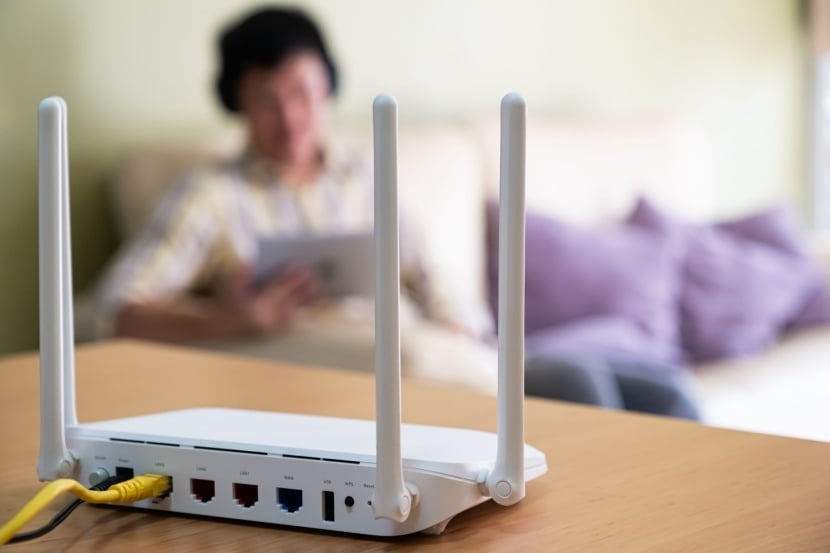Confused by internet speeds and download times? This guide to bits and bytes will give you the know-how you need to find the broadband deal you’re looking for.

When you’re thinking about internet speeds, bits and bytes matter. This guide explains the difference between the two, which is bigger – MB or KB – and why knowing your bits from your bytes could help you get a better broadband deals.
Bits vs bytes: Internet speeds and data sizes explained
When we talk about broadband speeds, bits and bytes relate to the amount of data involved and how quickly it’s transferred.
'Bit' is short for ‘binary digit’ and it’s the smallest unit of data we have. A byte is made up of eight ‘bits’ of data. The two may sound similar but the size difference is actually pretty significant, and they serve different purposes when it comes to broadband speeds.
In most situations, when talking about bits and bytes we’d be dealing with very large numbers. So we batch them up into larger units with metric prefixes, such as kilobits (Kb) and kilobytes (KB), gigabits (Gb) and gigabytes (GB).
To avoid confusion, bit is abbreviated with a lowercase b, while byte is represented with a capital B.
You could also think of it as:
- Byte (ie 50MB) = big B = bigger
- Bit (ie 10Mb) = small b = smaller
What’s the difference between a bit and a byte?
Bits are typically used to measure broadband connection speeds at a rate of how many bits can be transmitted over a network per second. For example, fibre optic broadband offers average speeds starting from 30 megabits per second (Mbps) and reaching way beyond 1000Mbps (or 1Gbps).
Bytes, on the other hand, are used to measure the size of data files. So you might say an episode you’ve downloaded was 1 gigabyte (1GB).
What is the difference between megabits and megabytes?
When it comes to broadband, you’ll usually see both bits and bytes prefixed by ‘mega’ as we’re dealing with vast amounts of data.
- A megabit = 1,024 kilobits
- A megabyte = 1,024 kilobytes
The 8:1 ratio between bits and bytes remains consistent through the different units of measurement, so 1 megabyte (1MB) = 8 megabits (8Mb).
As explained above, a megabit (Mb) will refer to your broadband speed, while a megabyte (MB) will be used in relation to file sizes.
How are bits and bytes related to broadband speeds?
When comparing broadband deals, you’ll see the internet speed or bandwidth referred to in megabits per second (Mbps). For example, part-fibre broadband can give you top speeds of around 80Mbps.
More recently, the data units for consumers have started to accommodate the even faster option of gigabit internet. Some full fibre broadband now offers speeds of 1Gbps (1,024Mbps) or more.
In relation to your broadband connection, bytes are relevant when we’re thinking about download times. Bearing in mind the 8:1 ratio, if your connection has a speed of 10Mbps, you can transfer 10 million bits of data every second. So downloading a 10MB file would take around 8 seconds.
Compare our range of fibre broadband deals.
Other data sizes – is KB bigger than MB?
Which is bigger – a MB or a KB? How about a KB or a GB? Here’s the answer…
| Data units (bits) | In bits | Data units (bytes) | In bytes |
|---|---|---|---|
|
Bit
|
1 or 0
|
Byte
|
|
|
Kilobit (Kb)
|
"1,024 bits"
|
Kilobyte (KB)
|
"1,024bytes"
|
|
Megabit (Mb)
|
"1,024Kb"
|
Megabyte (MB
|
"1,024KB"
|
|
Gigabit (Gb)
|
"1,024Mb"
|
Gigabyte (GB)
|
"1,024MB"
|
|
Terabit (Tb)
|
"1,024Gb"
|
Terabyte (TB
|
"1,024GB"
|
|
Petabit (Pb)
|
"1,024Tb"
|
Petabyte (PB)
|
"1,024TB"
|
|
Exabit (Eb)
|
"1,024Pb"
|
Exabyte (EB)
|
"1,024PB"
|
|
Zettabit (Zb)
|
"1,024Eb"
|
Zettabyte (ZB)
|
"1,024ZB"
|
In 2016, the amount of data traffic worldwide exceeded 1ZB. For tech giants like Apple, Amazon, Tesla and Microsoft who deal in huge amounts of data, yottabytes and brontobytes are the next step up.
A yottabyte (YB) is 1,024ZB and a brontobyte (BB) is 1,024YB. However, these aren’t yet standardised units of data measurement.
Broadband deals and speeds: What should I look for?
Internet providers make life easier by listing their broadband deals with megabits and gigabits per second. This shows the average speed that at least 50% of customers can expect at peak times. For consumers, this is between 8pm and 10pm.
For example, a 67Mb plan means that at least half of the users can achieve 67 megabits per second on average.
But is this fast enough for you? That depends on what you do online.
Read What broadband speed do I need?, to help you find the best broadband deal for you.
If you watch a lot of 4K TV or you’re an avid gamer, visit the confused.com download time calculator to work out download times based on your internet speed and the approximate file sizes (in bytes) that you’re dealing with.
It’s also worth noting that broadband has two speeds – upload speed and download speed. The upload speed is how quickly you can send information via the internet i.e. when you make a video call or upload photographs to social media. Download speeds refer to how long it takes you to download files such as videos.
Upload speeds tend to be slower than download speeds, but both are measured in Mbps.

